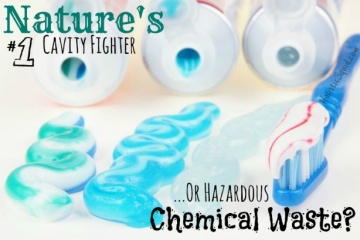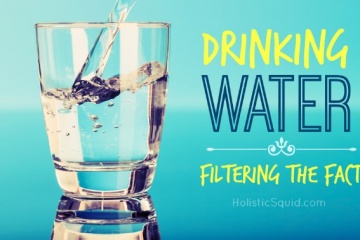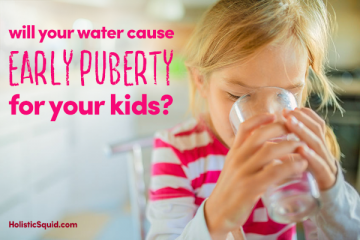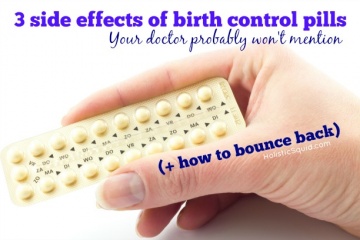
Willing to pass on water bottled in flimsy plastic? And completely skeeved by what may be lurking in your tap water? Me too. With bottled water and tap water out of the picture, that leaves filtered water. Because good drinking water essential for survival and health, you probably want to use one of the best water filters you can find. But boy, is the water filter market confusing. Here's a breakdown of why you'd want to filter your water in the first place…along with options when shopping around.
Water that's good for you and your family
For daily consumption, bottled water leaves much to be desired. First, it is a waste of plastic. Second, that plastic can leach nasty chemicals and hormone disruptors into your water. If you drink water bottled in glass, the resources required to get that water into your hands still leaves an ecological footprint. Finally, despite all the fancy advertising, the quality of bottled water may be not all it’s hyped up to be.
And then there's tap water. From the way your urban (or suburban) sink flows, it may seem like you are blessed with an endless supply of clean water. In reality, your water supplies may be limited if you live in drouth-ridden regions, like southern California. Furthermore, the water that flows through your tap is heavily processed and contains loads of unhealthy contaminants including hormones from discarded medications, toxins from gasoline bio-products, chlorine from processing, fluoride as a “public health” measure, and more.
Below are six types of contaminants you want to remove from municipal tap water:
- Chlorine and chloramines
- Volatile Organic Compounds (pesticides, herbicides, etc.)
- Heavy metals (Lead, Mercury, Aluminum, Cadmium, Chromium, Copper)
- Bacteria and viruses (Giardia and Cryptosporidium)
- General Sediment
- Fluoride (some may argue this one, but I think fluoride should be a personal choice rather than a public one)
The ideal water is both free of contaminants and mineral rich, as if you were drinking from a well at the bottom of a pristine, isolated mountain. Your tap water isn’t this good, and bottled water has its problems. The solution lies in the sorting through the best water filters. But how to choose?
Water filter options
Activated carbon water filter (like Brita, Pur, Aquasana)
How it works: (Faucet, Pitcher, or Whole House) Granular, activated carbon or powdered block carbon absorbs impurities.
Pros: Popular for home use as it is economical, easy to install, and effective at filtering out the most deadly contaminants. Can be installed for whole house filtration, providing water for bathing that is free of chlorine and other contaminants which can also improve indoor air quality.
Cons: Does not completely remove arsenic, fluoride, and nitrates. Susceptible to mold attacks.
Ceramic water filter (like Stefani Terracotta)
How it works: (Counter top) A cartridge of a fossil substance and/or nano-silver effectively traps and neutralizes bacteria.
Pros: Removes 95% of chlorine, pesticides, iron, aluminum and lead; and 99% of Cryptosporidium, Giardia, and sediment.
Cons: Does not remove fluoride. Often produces a slow water flow.
Gravity water filter (like Berkey & AquaRain)
How it works: (Counter top) Ceramic or black filters remove contaminants and noxious chemicals while holding several gallons of clean water.
Pros: Requires no plumbing or water hookup. Good for travel. Filters 99% of bacteria and viruses. Gets rid of chlorine. Removes up to 95% lead, MTBEs, and other heavy metals. Additional Berkey PF-2 filters remove fluoride and arsenic.
Cons: There's a wait time for the water to filter. After some use, Berkey filters run even slower and need to be scrubbed.
Water distiller
How it works: Water is boiled, killing microbes, steam is collected as distilled water leaving solid contaminants behind.
Pros: Distilled water is pure H20.
Cons: Minerals are eliminated in the filtration process.
Reverse osmosis filter
How it works: (Under sink installation) Relies on technology called hyper-filtration, producing water that is essentially the same as distilled water.
Pros: RO filters remove essentially all contaminants.
Cons: Although this water is very pure, it is also devoid of essential minerals.
Water ionizer (like Kangen & Jupiter)
How it works: (Under sink or counter top) A water ionizers or electrolyzed alkaline water filter separates water into an alkaline, mineral-rich water for drinking and an acidic, mineral-void water for washing and cleaning.
Pros: Many people who drink alkaline water report health benefits, while the antiseptic properties of acid water make it excellent for cleaning.
Cons: Water ionizers may still require additional pre-filtration to completely remove fluoride. The ionization is only effective for about an hour, so if you fill a bottle on the go it’s healthful properties may be gone by the time you’re gulping.
Magnetic systems
How it works: Polarizes minerals in water as it is passed through a magnetic field or media.
Pros: Purported benefits similar to water ionizers.
Cons: Does not filter or ionize water.
Ultraviolet water purification lamps (used in 3rd world hotels)
How it works: Irradiates water with UV rays that kill all living organisms.
Pros: Very effective at killing microbes.
Cons: Ineffective at particle filtration.
Still confused? Here’s the last drop…
Besides removing drug contaminants, chlorine, and any wee beasties that may be in your water – the best water filters also remove fluoride. This means that your best options are distillation, reverse osmosis, and countertop gravity filtration with the Big Berkey. If you decide to go with distillation or reverse osmosis, be sure to add minerals back into your water with a supplement like Trace Minerals drops.
Another option is a complete reverse osmosis filtering system followed by a re-mineralization process for the ideal water straight from your tap. To see the water filter my family and I use, click here.
A whole house filter is a great idea, especially if anyone in your household suffers from allergies, asthma, or other respiratory conditions. But if you’re concerned about completely removing potential toxins such as fluoride and arsenic, you probably still want to follow the former recommendation for your drinking water as well.











We just installed the AquaOx. It’s a whole house filter that removes nearly all contaminates. Love not having the chlorine smell and not having to always run the distiller. Double checking though that it removes fluoride.
Thanks for this, Emily. Distillation really does leave your water super clean but not a lot of people know that it also strips water of all the minerals that the body needs. Which is why it isn’t really the most advisable option when it comes to consumption. You want water that is free from harmful contaminants while still packing in minerals.
Thanks for the information about water filters. Now that I know there is chlorine, heavy metals, bacteria, and who knows what else in my water, I want a filter. I really like the idea of a ceramic filter.
What about the shower water. Water contains so many heavy metals and chlorine as you know. It causes a serious harm to our skin and hair. So must be filter the shower water as well as drinking water. Thanks for this valuable post.
She mentioned one that filters your shower water as well.
Must say the information and tips described here are quite appreciable. Water Filter simultaneously helps to filter out chlorine, organic pollutants, sediment, and pesticides while improving the taste of your water, eliminating odors and also alkalize your water.
I use water filter to clean water, but I’m still suspicious with this option of water purification. But since I’m against the use of plastic and I don’t use bottled water I think water filters is the most convinient and affordable way of water purification.
Hey Emily, Thanks for the informative article. Reverse Osmosis water purifiers are widely used in India because they can work with water having high TDS levels. But, as you menitoned, RO water purifiers will remove all the minerals in the water. But, Now manufacturers are making RO water purifers that are capable of retaining natural minerals in the water 🙂
Cleanliness and being healthy are the top priority of my family. I have been persuaded in using water filter through this! It is beneficial for my whole family. Thanks a lot!
Thank you for the valuable information. Recently I purchased RO water purifier. The main problem with RO water purifiers is they need a lot of water. For example If 3 liters of water are sent into the water purifier, it will give only 1 liter of clean water and rejects 2 liters of water. Because It divides the water in to 2 parts and forces dissolves solids from one part to other.
I know Brita filters aren’t the best, but they at least get the job done as far as making tap water not taste horrible. I really wanna get a Berkey or something like it some day though. I was sad to discover that Brita filters don’t filter out fluoride which is one of the main reasons I wanted to get a water filter in the first place.
Have you found a suitable filter? I would love to recommend a great water filtering system that will exceed your expectations!
Thanks for this!
I actually have a Stefani Terracotta and am very unhappy with it and looking for another option. I find the terracotta impossible to keep clean! The exterior grows mold from the condensation. I have found myself emptying and disassembling it weekly to clean it – very frustrating! Also, it took many cycles to remove the strong clay taste from the crock when it was new. I think I filtered through at least 40 litres before it was drinkable! I loved the idea of ceramic, and love the look of it, but would NOT recommend it. My brother has a Berkey, and it seems FAR superior.
With all the different tricks and types of filters and things we have to use to purify water nowadays, I have to wonder how in the world people managed to purify water before all of these things were invented. Has water become more dirty than it used to be?
Hi,
Can you help suggest me if with the budget of $600 and which one is the best to go for? Thanks so much.
043dhx